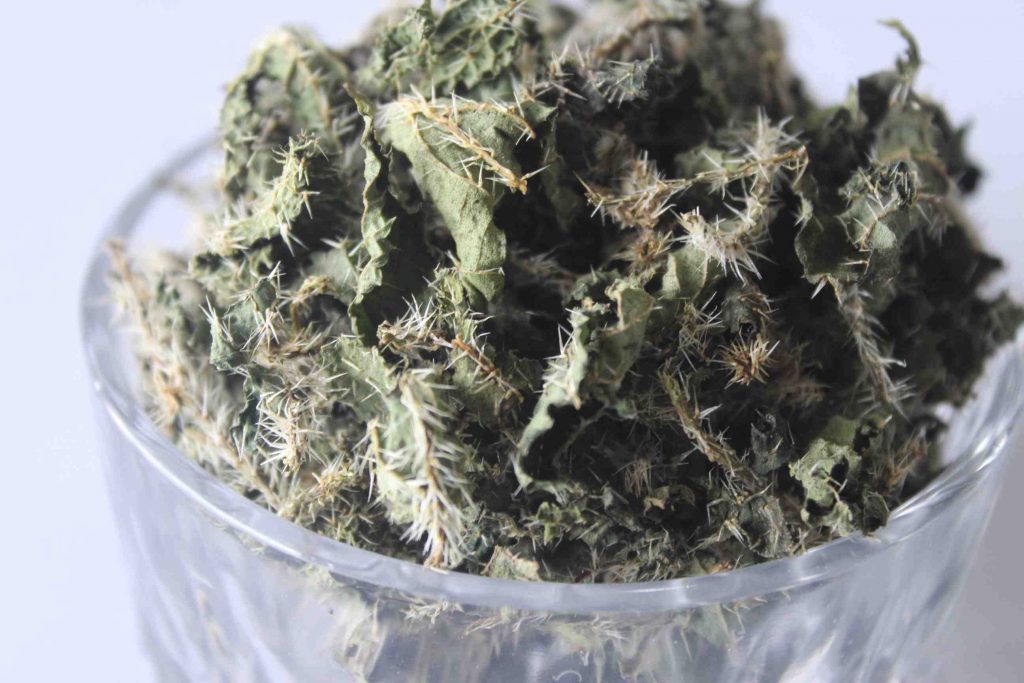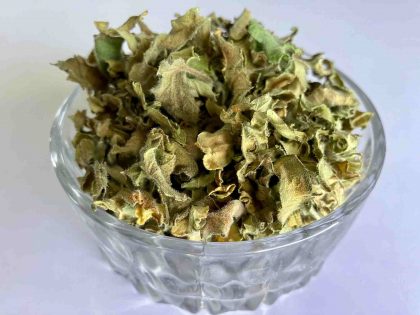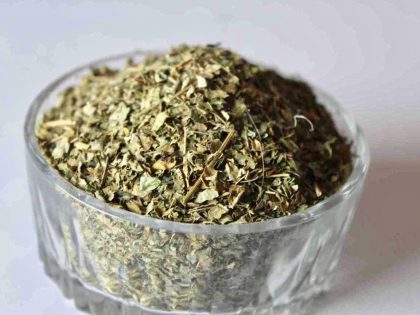The Importance of Minerals for Optimal Health
In the pursuit of optimal health, minerals play a vital role in supporting the body’s various systems and functions. These essential nutrients are required in small amounts, but their impact on our well-being can be profound. Minerals are involved in countless physiological processes, from maintaining strong bones and a healthy immune system to supporting cognitive function and energy production.
Calcium, for instance, is crucial for building and maintaining strong bones and teeth, while also playing a role in muscle contraction, nerve function, and blood clotting. Magnesium, on the other hand, is essential for energy production, muscle and nerve function, and the regulation of blood sugar levels. Zinc is crucial for a robust immune system, wound healing, and the proper functioning of the senses of taste and smell. Without adequate amounts of these and other minerals, our bodies can struggle to perform at their best, leading to a range of health issues. Ensuring that you consume a diet rich in a variety of minerals is essential for maintaining overall health and well-being. However, due to factors such as soil depletion, processed foods, and modern farming practices, many people may not be getting enough of these vital nutrients from their diet alone. This is where mineral nutrition supplements can play a crucial role in filling the gaps and providing the body with the necessary building blocks for optimal function.
The Benefits of Herbs for Overall Well-being
Alongside the importance of minerals, herbs have long been recognized for their medicinal properties and their ability to support overall well-being. Herbs have been used in traditional medicine for centuries, and their versatility in addressing a wide range of health concerns is truly remarkable.
Herbs can offer a natural and holistic approach to supporting various aspects of health, from enhancing digestion and reducing inflammation to promoting relaxation and improving sleep quality. For example, ginger is known for its anti-inflammatory properties, making it a valuable ally in managing conditions like arthritis and muscle soreness and it is also treats hair loss. Chamomile, on the other hand, is renowned for its calming effects, making it a popular choice for those seeking to reduce stress and improve sleep.
But the benefits of herbs extend far beyond these specific applications. Many herbs contain a rich array of phytochemicals, which are plant-based compounds that can have a profound impact on the body’s systems. These compounds can act as antioxidants, supporting the body’s natural defenses against oxidative stress and cellular damage. They can also modulate the immune system, support healthy digestion, and even influence mood and cognitive function.
By incorporating herbs into your daily routine, you can tap into the power of these natural remedies and support your overall well-being in a gentle and holistic manner. Whether you prefer to consume herbs in the form of teas, tinctures, or capsules, or incorporate them into your cooking, the benefits of these versatile plants can be truly transformative.

Common Minerals and Their Health Benefits
Minerals are essential for a wide range of bodily functions, and each mineral plays a unique role in supporting our overall health. Understanding the specific benefits of various minerals can help you make informed choices about your supplementation and dietary intake.
One of the most well-known minerals is calcium, which is crucial for building and maintaining strong bones and teeth. Calcium also plays a vital role in muscle contraction, nerve function, and blood clotting. Adequate calcium intake is particularly important for individuals at risk of osteoporosis or those who are physically active and need to support their musculoskeletal system.
Another essential mineral is magnesium, which is involved in over 300 enzymatic reactions in the body. Magnesium is crucial for energy production, muscle and nerve function, and the regulation of blood sugar levels. It also plays a role in supporting a healthy immune system and promoting relaxation and sleep. Many individuals, particularly those under stress or with certain health conditions, may benefit from increased magnesium intake.
Zinc is another important mineral that is essential for a robust immune system, wound healing, and the proper functioning of the senses of taste and smell. It also supports cognitive function and protein synthesis. Ensuring adequate zinc intake is particularly important for individuals who are recovering from illness or injury, as well as those who are physically active or under stress. These are just a few examples of the many minerals that are essential for optimal health. Other important minerals include iron, which supports the production of red blood cells and the transport of oxygen; selenium, which is crucial for thyroid function and antioxidant protection; and copper, which is involved in the production of red blood cells and the maintenance of nerve function and it is also useful in mesotherapy for face.
Popular Herbs and Their Medicinal Properties
Alongside the essential role of minerals, herbs have long been recognized for their medicinal properties and their ability to support overall well-being. From ancient traditional medicine systems to modern-day herbal remedies, these versatile plants have been used to address a wide range of health concerns.
One of the most well-known and widely used herbs is ginger. This aromatic root has a long history of use in traditional medicine, particularly for its anti-inflammatory properties. Ginger has been shown to be effective in reducing inflammation associated with conditions like arthritis, muscle soreness, and menstrual cramps. It can also support healthy digestion and may even help to alleviate nausea and vomiting.
Another popular herb is turmeric, which contains the active compound curcumin. Turmeric is renowned for its powerful anti-inflammatory and antioxidant properties, making it a valuable ally in the management of conditions like joint pain, chronic inflammation, and even certain types of cancer. Additionally, turmeric has been studied for its potential to support cognitive function and mood regulation.
Chamomile is a soothing herb that has been used for centuries to promote relaxation and improve sleep quality. This gentle herb contains compounds that can help to reduce anxiety and stress, making it a popular choice for those seeking natural ways to manage their mental and emotional well-being. Chamomile is also known for its anti-inflammatory and antimicrobial properties, which can support digestive and respiratory health.
Echinacea is another herb that has gained widespread recognition for its immune-boosting properties. This native North American plant has been used for centuries by indigenous populations to support the body’s natural defenses against illness and infection. Echinacea is believed to stimulate the production of white blood cells and enhance the activity of the immune system, making it a valuable tool for maintaining overall health and wellness.
These are just a few examples of the many herbs that have been used for their medicinal properties throughout history. From St. John’s Wort for mood support to ashwagandha for stress management, the world of herbs offers a rich tapestry of natural remedies that can be leveraged to support various aspects of health and well-being.
How Minerals and Herbs Work Synergistically
The true power of minerals and herbs lies in their synergistic relationship. When these natural compounds are combined, they can work together to create a powerful effect that is greater than the sum of their individual parts. This synergistic relationship is what makes the combination of minerals and herbs so compelling for those seeking optimal health and wellness.
One of the ways in which minerals and herbs work together is through their complementary mechanisms of action. Minerals, as we’ve discussed, are essential for a wide range of physiological processes, from supporting the immune system to regulating energy production. Herbs, on the other hand, often contain a wealth of phytochemicals that can modulate these same processes in unique and targeted ways.
For example, the mineral zinc is crucial for a robust immune system, as it supports the production and function of various immune cells. Herbs like echinacea, which are known for their immune-boosting properties, can work synergistically with zinc to enhance the body’s natural defenses against illness and infection. By combining these two natural compounds, you can create a powerful synergy that supports overall immune health more effectively than either one alone.
Similarly, the mineral magnesium is essential for energy production and muscle function, while herbs like ashwagandha and rhodiola are known for their adaptogenic properties, which can help the body better manage stress and support overall energy levels. By combining these minerals and herbs, you can create a comprehensive approach to supporting your physical and mental well-being, addressing multiple aspects of health simultaneously.
The synergistic relationship between minerals and herbs can also be seen in their ability to enhance the bioavailability and absorption of each other. Certain herbs, such as black pepper, contain compounds that can improve the body’s ability to absorb and utilize specific minerals, making the combination of these natural compounds even more effective.
By harnessing the power of this synergistic relationship, you can create a holistic and comprehensive approach to supporting your overall health and well-being. Whether you’re seeking to boost your immune function, improve your mood, or enhance your athletic performance, the combination of minerals and herbs can provide a powerful and natural solution.
Incorporating Minerals and Herbs into Your Daily Routine
Incorporating minerals and herbs into your daily routine is a simple and effective way to support your overall health and well-being. By making these natural compounds a regular part of your lifestyle, you can tap into their unique benefits and create a comprehensive approach to nourishing your body and mind.
One of the easiest ways to incorporate minerals and herbs into your daily routine is through the use of dietary supplements. Mineral supplements, such as those containing calcium, magnesium, or zinc, can help to fill any gaps in your dietary intake and ensure that your body is receiving the essential nutrients it needs to function optimally.
Herbal supplements, on the other hand, can provide a concentrated dose of the beneficial compounds found in various medicinal plants. These can come in the form of capsules, tinctures, or even teas, making it easy to incorporate them into your daily routine. Whether you’re seeking to support your immune system, promote relaxation, or enhance your cognitive function, there’s likely an herbal remedy that can help.
Beyond supplements, you can also incorporate minerals and herbs into your diet through the foods you consume. Many whole, unprocessed foods are naturally rich in essential minerals, such as leafy greens, nuts and seeds, and seafood. Similarly, herbs can be easily incorporated into your cooking, adding both flavor and medicinal benefits to your meals.
For example, you could start your day with a smoothie that includes a variety of mineral-rich ingredients, such as spinach, chia seeds, and almond milk, along with a sprinkle of turmeric or ginger for added anti-inflammatory and digestive support. At lunchtime, you could enjoy a salad topped with roasted vegetables, a sprinkle of pumpkin seeds (rich in zinc), and a drizzle of olive oil infused with fresh herbs like rosemary or basil.
By making minerals and herbs a regular part of your daily routine, you can create a holistic approach to supporting your overall health and well-being. Whether you choose to supplement, cook with these natural compounds, or a combination of both, the benefits can be truly transformative, helping you to feel your best and thrive in all aspects of your life.
Recipes and Remedies Using Minerals and Herbs
Incorporating minerals and herbs into your daily routine can be as simple or as elaborate as you’d like. From quick and easy recipes to more complex herbal remedies, there are countless ways to harness the power of these natural compounds to support your health and well-being.
One simple recipe that combines the benefits of minerals and herbs is a mineral-rich green smoothie. Start with a base of spinach or kale, which are excellent sources of magnesium, calcium, and iron. Add in some chia seeds or flaxseeds for a boost of omega-3s and minerals like zinc and selenium. Blend in a banana or some berries for natural sweetness, and finish with a sprinkle of cinnamon or a dash of ginger for added anti-inflammatory properties.
For a heartier meal that incorporates minerals and herbs, try a roasted vegetable and quinoa bowl. Quinoa is a great source of plant-based protein and contains a variety of minerals, including iron, magnesium, and phosphorus. Roast a medley of vegetables, such as sweet potatoes, Brussels sprouts, and bell peppers, and toss them with the quinoa. Top it off with a drizzle of tahini dressing, which contains the mineral sesame seeds, and a sprinkle of fresh herbs like parsley or cilantro.
If you’re looking for a soothing and restorative herbal remedy, consider making a chamomile and lavender tea. Chamomile is known for its calming properties, while lavender can help to promote relaxation and improve sleep quality. You can also add a bit of honey, which contains trace minerals like iron and zinc, to enhance the flavor and provide additional health benefits.
For a more targeted herbal remedy, try making a turmeric-ginger tincture. Turmeric and ginger are both renowned for their anti-inflammatory properties, making this tincture a powerful tool for managing conditions like joint pain, muscle soreness, or digestive issues. Simply steep the herbs in a high-quality alcohol, such as vodka or brandy, and take a few drops as needed.
These are just a few examples of the countless recipes and remedies that you can create using the power of minerals and herbs. By experimenting with different combinations and exploring the unique properties of these natural compounds, you can tailor your approach to your specific health needs and preferences, ultimately supporting your overall well-being in a truly holistic way.
Recommended Mineral and Herb Supplements
When it comes to incorporating minerals and herbs into your daily routine, supplements can be a convenient and effective way to ensure that you’re getting the nutrients and compounds your body needs. With so many options on the market, it can be overwhelming to choose the right supplements. Here are some recommendations to help you get started:
For mineral supplements, look for high-quality options that contain a balanced blend of essential minerals, such as calcium, magnesium, zinc, and iron. Reputable brands like Nordic Naturals, Garden of Life, and MegaFood offer comprehensive mineral supplements that are formulated to be easily absorbed by the body.
In terms of herbal supplements, some popular and well-researched options include ginger, turmeric, ashwagandha, and echinacea. Look for brands that use high-quality, organic herbs and that provide third-party testing to ensure purity and potency. Brands like Gaia Herbs, Himalayya Herbal Healthcare, and Nature’s Way are known for their exceptional herbal supplements.
For a synergistic approach, consider supplements that combine minerals and herbs, such as a multivitamin that includes a blend of essential vitamins and minerals, as well as adaptogenic herbs like ashwagandha or rhodiola. These types of comprehensive formulas can provide a holistic solution for supporting overall health and well-being.
When choosing any supplement, it’s important to do your research, read reviews, and consult with a healthcare professional, especially if you have any underlying health conditions or are taking medications. The right supplements can be a valuable addition to your wellness routine, but it’s crucial to ensure that they are safe and appropriate for your individual needs.
Conclusion: Harnessing the Power of Minerals and Herbs for a Healthier Life
In the pursuit of optimal health and well-being, the combination of minerals and herbs offers a powerful and natural solution. By harnessing the unique properties of these essential nutrients and medicinal plants, you can create a comprehensive approach to supporting your body’s various systems and functions.
Minerals play a vital role in countless physiological processes, from maintaining strong bones and a healthy immune system to supporting cognitive function and energy production. Herbs, on the other hand, have been used for centuries in traditional medicine to address a wide range of health concerns, from enhancing digestion and reducing inflammation to promoting relaxation and improving sleep quality.
When these two natural approaches are combined, the synergistic effect can be truly transformative. Minerals and herbs can work together to enhance the body’s ability to absorb and utilize essential nutrients, while also targeting multiple aspects of health simultaneously. Whether you’re seeking to boost your immune function, improve your mood, or enhance your athletic performance, the power of this dynamic duo can provide a natural and holistic solution.
By incorporating minerals and herbs into your daily routine, you can take a proactive approach to your health and well-being. From dietary supplements to herbal remedies and nourishing recipes, there are countless ways to harness the benefits of these natural compounds and support your body’s optimal function.
So, embark on your journey towards optimal health by embracing the power of minerals and herbs. Nourish your body, mind, and spirit with these natural allies, and unlock the full potential of your well-being. Together, these two natural wonders can be the key to a healthier, more vibrant life.
-
Dried Geranium Leaves (25g)₹299.00
-
Dried Mugwort Leaves₹150.00
-
Dried Moringa Leaves₹120.00



